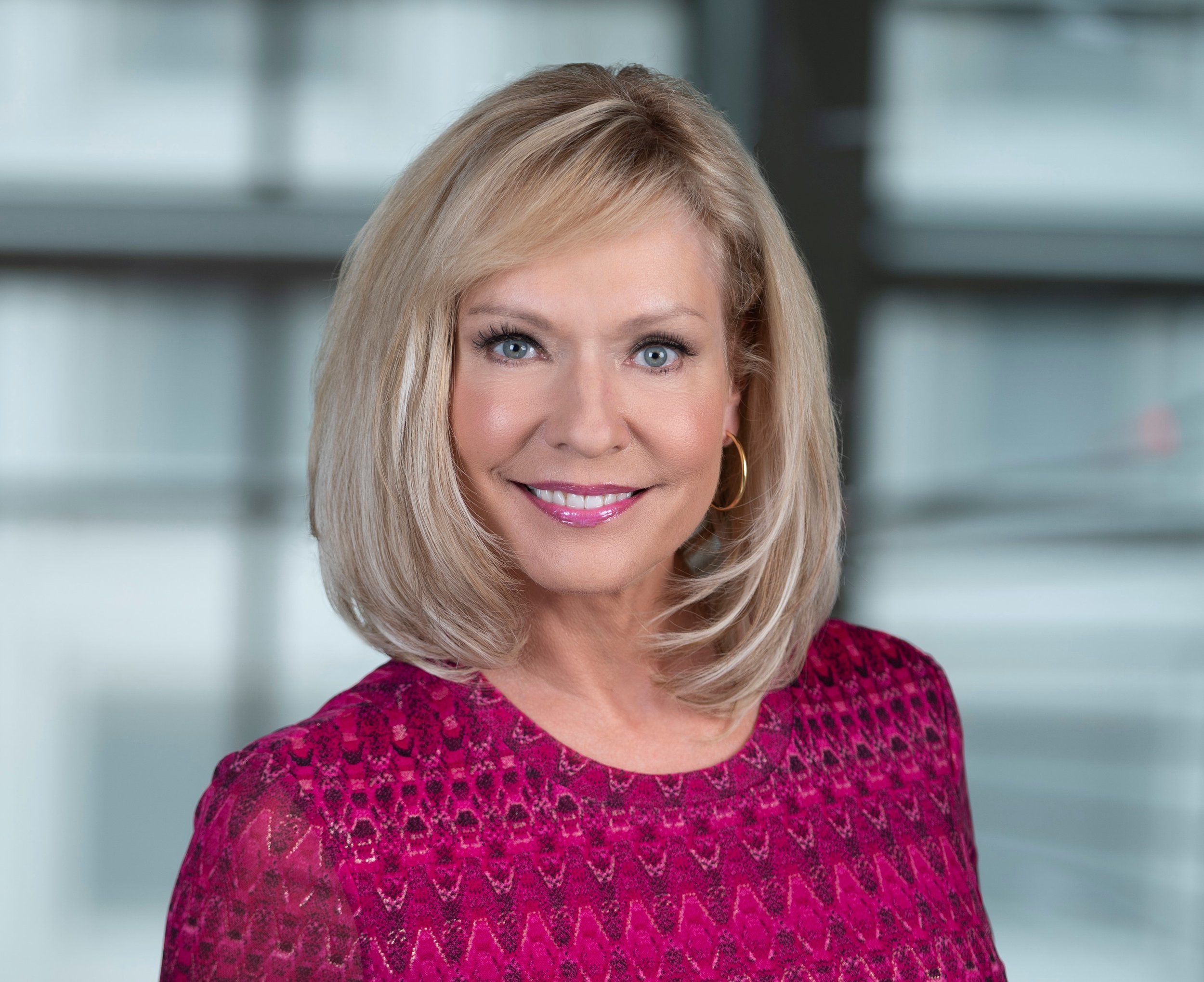
Trešdiena, 2025.gada 24.decembris
Avots: https://www.thefemword.world/her-story/anita-brikman-chpa
A: I am so grateful to be in the place I am now, and I believe my career as a reporter/anchor focused primarily on healthcare has been pivotal in helping me get here! As a kid, I always wanted to be in front of the camera; my career at smaller stations in the Midwest and then at WPVI-TV in Philadelphia and WUSA9 in Washington, D.C. helped me accomplish those dreams.
Then, I took a substantial leap of faith to transition into a leadership role in the world of healthcare-focused associations…first at the National Hospice and Palliative Care Organization (NHPCO) and now at the Consumer Healthcare Products Association (CHPA). It has been an incredibly rewarding professional journey.
In particular, my current role as the executive director of an educational foundation focused on medicine safety aligns with my previous work as a broadcast journalist devoted to providing the most critical and vetted information necessary for people to take control of their healthcare decisions and personal wellness. An intervention in a sterile office to deal with an advanced disease-state is, of course, a critical component of medicine. But if we can help people focus on their personal well being before they get sick…it benefits the person and the healthcare system as a whole.

Anita Brikman (center) covering the presidential inauguration for WUSA9 in Washington, DC, 2012
A: There are several ways consumers can ensure their voices are heard, by both their healthcare providers and the consumer healthcare products industry, which CHPA represents.
When you see your doctor, make sure all the OTC medicines and dietary supplements you take are noted in your electronic health record. Many times, people only focus on the prescription drugs they use; but there can be interactions with over-the-counter products, too. Make sure your HCP has a holistic understanding of everything you are taking.
If you ever experience a bad side effect from medicine (what is often referred to as an “adverse event”) let the company that manufactures it know! Healthcare and pharmaceutical corporations have consumer helplines and email addresses available to their customers so an adverse event can be reported right away, as well as any problems or potential contamination with a product.
Finally, you can also make your voice heard with your purchasing power. If a company is making claims on TV, the internet, or social media that sound way too good to be true- they probably are. Reputable manufacturers hold themselves to the highest standards of quality and product integrity, as regulated by the FDA. They also don’t make outlandish claims about benefits or cures. So, do your research when trying a new healthcare product and never hesitate to ask a pharmacist for advice before making a purchase.
A: So much has changed in our healthcare system and society since I grew up in the 80’s; much of it for the better, I think. For one, the view of healthcare as a patriarchal model in which the “doctor always knows best” has been called into question. People do their own research, seek second opinions more readily, and are also more open to blending holistic or “natural” solutions with the mainstream medicines they take.
We have also become more aware of the chemicals, artificial colors, and other additives that can be in processed foods, or used in the manufacturing process of health and beauty products. Consumers want transparency about what they are ingesting into their bodies or putting on their skin, and the potential impact on both individual health and the environment.
Limiting plastic in packaging is a huge area of concern right now. While CHPA member companies’ products are FDA regulated and subject to certain packaging requirements for safety’s sake, manufacturers are still working on better sustainability programs. It is the right thing to do and it can also be profitable (which may come as a surprise to some). Many shoppers today look for examples of corporate social responsibility (CSR) when choosing a brand…and consumer healthcare products are no exception.

Anita and the CHPA team hosting their hybrid live/virtual fundraising gala in 2021 for the CHPA Educational Foundation
“I also find it very inspiring to work with so many talented female leaders in the consumer healthcare field. The women who serve on our board of directors lead with the highest professionalism…but with keen insight and empathy as well.”
A. This is an excellent question. CHPA is located in Washington, D.C. because we are an industry trade association that lobbies, in our case, at both the federal and state levels. But I should point out that we are not PhRMA, so Rx drug pricing and other highly politicized issues in healthcare right now are outside CHPA’s scope. But we do advocate for affordable access to self-care.
Our federal government affairs team lobbied to have OTC medicines once again made eligible for reimbursement from health savings and flexible spending accounts (HSAs/FSAs). They also worked tirelessly to get legislation passed just last year that modernizes and improves the way the Food and Drug Administration regulates OTC medicines. In the States, we work to stop abuse or misuse of certain ingredients (like the decongestant pseudoephedrine or the cough and cold ingredient dextromethorphan) while also making sure these remedies remain available to the millions of families that use them the right way.
Not all lobbying deserves the bad reputation or hostility it often receives. But there is also no question that a lot of money is spent to influence lawmakers on Capitol Hill every year, and the American public has become more skeptical and disappointed in how the system works.

Anita visiting a hospice patient in Brooklyn, NY, one of the dozens of families that shared their stories for the NHPCO national campaign, 2014
A: Health literacy for people of every age is something I am truly passionate about; improving health literacy through education and outreach is a key strategic imperative of our foundation.
Just because a medicine is sold without a doctor’s prescription does not mean it is risk free, especially if you are taking other OTC or Rx drugs, too, which many older Americans are. The CHPA Educational Foundation, and our consumer facing website www.KnowYourOTCs.org, works to educate caregivers and healthcare providers about the knowledge gaps we’ve uncovered surrounding safe medicine use.
For older folks, we focus a lot on pain relievers. As doctors are encouraged to prescribe fewer opioids for the treatment of chronic pain, people with arthritis, back pain, etc. are using more OTCs. But they need to take a look at their own risk factors in picking the pain reliever that’s right for them, and we offer an online-tool to help them do that.
This is just one example of the work we are doing to fulfill the foundation’s mission of promoting “happy, healthier lives through responsible self-care.” We all hope to live longer than the generation before us; but more than that, I believe, we want to live well.
A: I personally feel very lucky that my experiences as a healthcare journalist and now healthcare communications executive have provided me with a deep knowledge base of medicine, the healthcare system, public health policy, and the translation of scientific research to the bedside. As a result, I often feel equipped to ask the right questions of my healthcare provider or medical team.
But that doesn’t mean my experiences have always been positive. For example, when my father was battling stage four colon cancer in 1998 and we had exhausted every FDA-approved treatment available at the time, he discovered a doctor in Philadelphia (where I was a reporter back then) who promised a revolutionary antibody therapy. I was skeptical as the science to back up his claims was lacking. But when an individual and his or her family are dealing with life-threatening disease, we all want to grasp for that last hope of a cure. My father died several months later.
The experience has made me an even more determined patient and consumer advocate, offering education and empowerment whenever and wherever I can.
A: Hospice can be so much more than end-of-life care, if people understand it and families know to request these services at the right time. A person can be deemed eligible for hospice care if they have a terminal illness, with six months or less of life expectancy if the illness runs its normal course. But often, patients are only ready to accept hospice when they are days away from dying (as was the case with my father.) At that point, hospice doctors and nurses can and will do everything possible to provide comfort, compassion and pain relief. But if hospice care is accessed earlier, a team of professionals including therapists, counselors, chaplains, and others can come into the home and offer far more comprehensive treatment options, stabilizing the patient and offering critical family support, so everyone can cherish the moments of life remaining with less anxiety and fear.
A. As you can imagine, I still find it very rewarding to act as a spokesperson in the media and at public events for my organization, as it allows me to utilize the presentation skills I honed while working in TV. But what I find truly exciting is the work our organization does directly with the FDA and CDC as well physicians, pharmacists, and nurse practitioners. In particular, the CDC has credited our “Up and Away” campaign (which reminds parents to store medicine safely out of reach) as helping drive down pediatric ED visits due to accidental ingestions of medicine by 75% over the last 10 years.
I also find it very inspiring to work with so many talented female leaders in the consumer healthcare field. The women who serve on our board of directors lead with the highest professionalism…but with keen insight and empathy as well. They have also been role models in how to balance work and family life in a highly demanding profession. For me, it has personally become easier now that my children are young adults and off at college. However, I still have to remind myself that balance is key and to practice self-care, such as meditation and exercise every day. We simply can’t function at our best if we don’t take time to replenish the mind, body, and spirit.

Anita’s daughter, Lillian Grace, at her high school graduation in 2019…on her way to becoming an empowered young woman focused on medicine/public health
A. “Power” can be a loaded word for women; is she “powerful” or “pushy,” and therefore potentially less likeable? But I had many moments of feeling empowered when covering historic moments as a journalist in Washington, D.C., such as a Supreme Court decision or presidential inauguration. I have also felt the power of knowledge and its ability to empower others when I’ve heard from viewers who found a new treatment or health solution thanks to one of my reports.
Finally, I can also say that I feel powerful (and filled with gratitude) when I am able to successfully mentor the younger women on my team, and when I watch my daughter begin to immerse herself in the field of medicine and public health…with a profound desire to make the world a slightly better place through her impact and intervention.
Find Consumer Healthcare Products Association at: https://www.chpa.org/